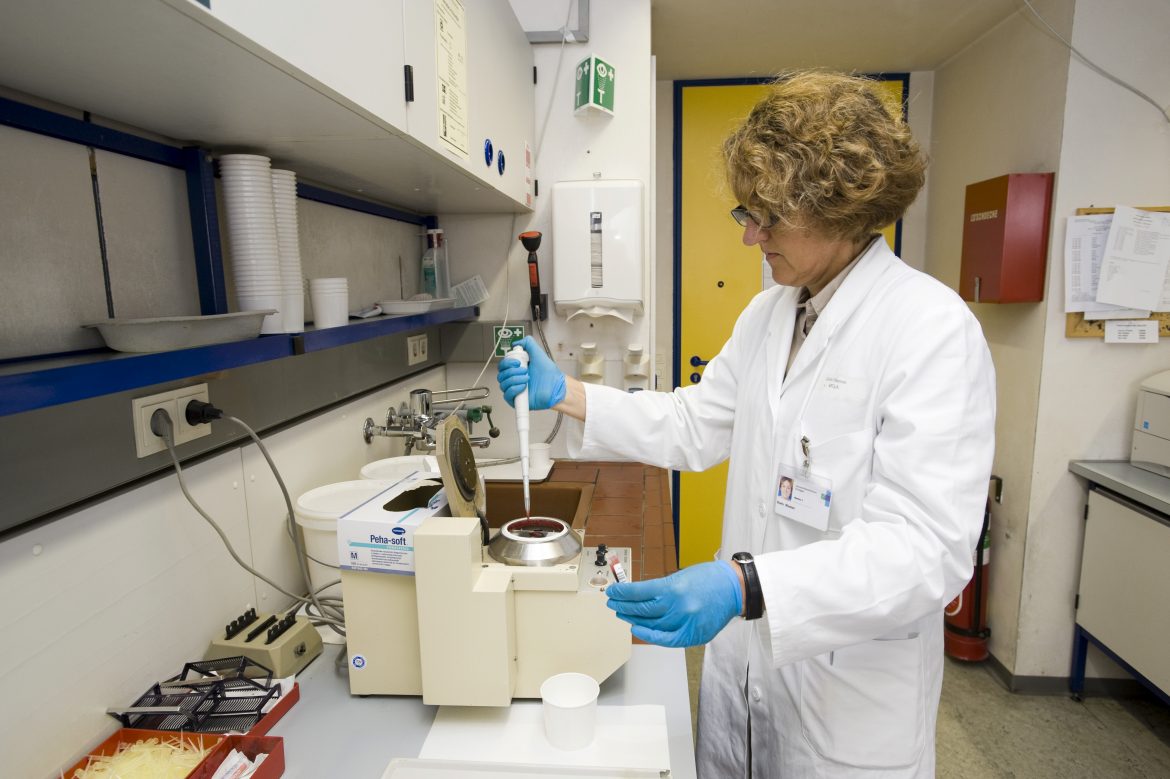Outside, the sun is low, reflecting off last night’s unthawed ice. The call tone ends, and the camera switches on to reveal Donna Bradbury sitting close to her screen – red faced after coming in from the cold. She runs her fingers across her head trying to tame the dreaded hat hair and offers a welcoming smile. She is in her element in her home in Lincoln which she shares with her family – including husband Martin and children Robert, Jacob, and Oliver. Bradbury is only 39 but had worried she might not live to raise her beloved boys.
Bradbury says she plans to pick them up from school soon. She smiles at the thought and her eyes seem to shine with gratitude. Two years ago, she agonised over how many more times she would be able do this for her children. “You’ve got cervical cancer,” said a nurse at Lincoln Hospital. The doctors had found a six-centimetre tumour that surgery could not remove. She says the room froze as she processed what it would mean for her boys who were aged 13, nine and two at the time.
On August 17, 2020, Bradbury was one of nine women who are diagnosed with cervical cancer every day. “I heard the word cancer and straight away I thought I was going to die. Within five minutes of hearing the news I was out of the hospital. I didn’t want to wait or speak to anyone,” she says.
She could not understand how this had happened. Bradbury had never missed a smear test and had negative results every time. Nevertheless, she had other symptoms that charities and organisations are currently working to raise awareness of during the World Health Organisation’s (WHO) Cervical Cancer Awareness Month.
Raising awareness
WHO aims to eliminate cervical cancer globally through more smear tests, increased vaccination, and better public awareness. Its target has been facing unexpected obstacles since the pandemic which still impacts the diagnosis and treatment of chronic conditions like cancer. According to Jo’s Cancer Trust, one million women missed their smear test because of covid, and its helpline has recorded growing anxiety about having one.
Bradbury uses Instagram to share how important it is to overcome the anxiety. When she was first diagnosed, she says she struggled to find women in her situation. Now she has 4,417 followers and an open, digital space to raise awareness of cervical cancer. “It’s important to reach out to people and talk about this,” she says. “I get messages from women every week asking for advice.”
Her journey started in May 2020 when she noticed abnormal vaginal discharge which was misdiagnosed as bacterial vaginosis. Days later she was passing blood clots and it only got worse. She started bleeding in between periods and during sex. Her symptoms were textbook signs of cervical cancer, yet she waited three months to be diagnosed.
Bradbury supports the drive for more smear tests but says it is important to know they do not test for cancer. They test for HPV (human papillomavirus). Jo’s Trust says 99.7% of cervical cancer cases are caused by HPV. The statistics seem reassuring, but the missing percentage refers to around 10 women in England alone. Bradbury says she knows at least four women who have cervical cancer, but never had a positive smear test. “If I’d waited for my next regular smear, I don’t think I’d be here today,” she adds.
Treating cervical cancer
The next steps after her diagnosis were “all very fast paced.” Within a month she had started chemotherapy, radiotherapy, and brachytherapy. The smile her children brought to her face becomes strained as she recalls the pain of these treatments and how it affected her as a mother. By the middle of November, she started to get radiation cystitis. According to Macmillan Cancer Support this is a common side effect and causes inflammation and scarring of the bladder.
“It felt like shards of glass. It was so painful I’d cry and couldn’t even walk,” says Bradbury. On the worst days she would pick her boys up from school early and have them come outside to meet her because she could not bear to walk. She adds by the second week of radiotherapy she confided in her husband that she couldn’t carry on with the treatment.
She felt like that more than once but has made it to the other side. On March 1, 2021, Bradbury answered the phone to the news she had been dreaming of. With Martin by her side, they listened to the doctor say: “It’s clear. You’re in remission.” She pauses over the words and her eyes drift around the room in disbelief as if she is hearing them for the first time.
Getting the all clear
Until this point Bradbury has been composed but the memory of “the best day of her life” still brings tears to her eyes. “When we got the call, I burst out crying and Martin was close to tears. It was a complete shock,” says Bradbury. She is quick to add that she does not think of herself as cancer free. She says she hopes to use those words in 2026 – five years without the cancer recurring.
Although she admits to having bad days, she says there are plenty of people who would give anything to have one of her bad days because she is lucky to be alive. According to Cancer Research, cervical cancer causes two deaths a day in the UK. Yet, one in four women ignore invitations to a smear test.
The numbers do not lie. WHO says cervical cancer is one of the most treatable forms of cancer, but the lack of awareness means people do not recognise the symptoms or get tested to diagnose it early. This month’s awareness campaign has been supported by hospitals and cancer charities. With WHO, they are sharing a clear message to “get informed and get screened.”
Bradbury warns smear tests are only part of preventing cervical cancer – the rest is knowing what is normal for your body. For her, vaginal discharge and blood clots were not normal, so she kept pushing to find the cause. “Cancer doesn’t wait,” she says, “so if you wait it’s already winning.”





